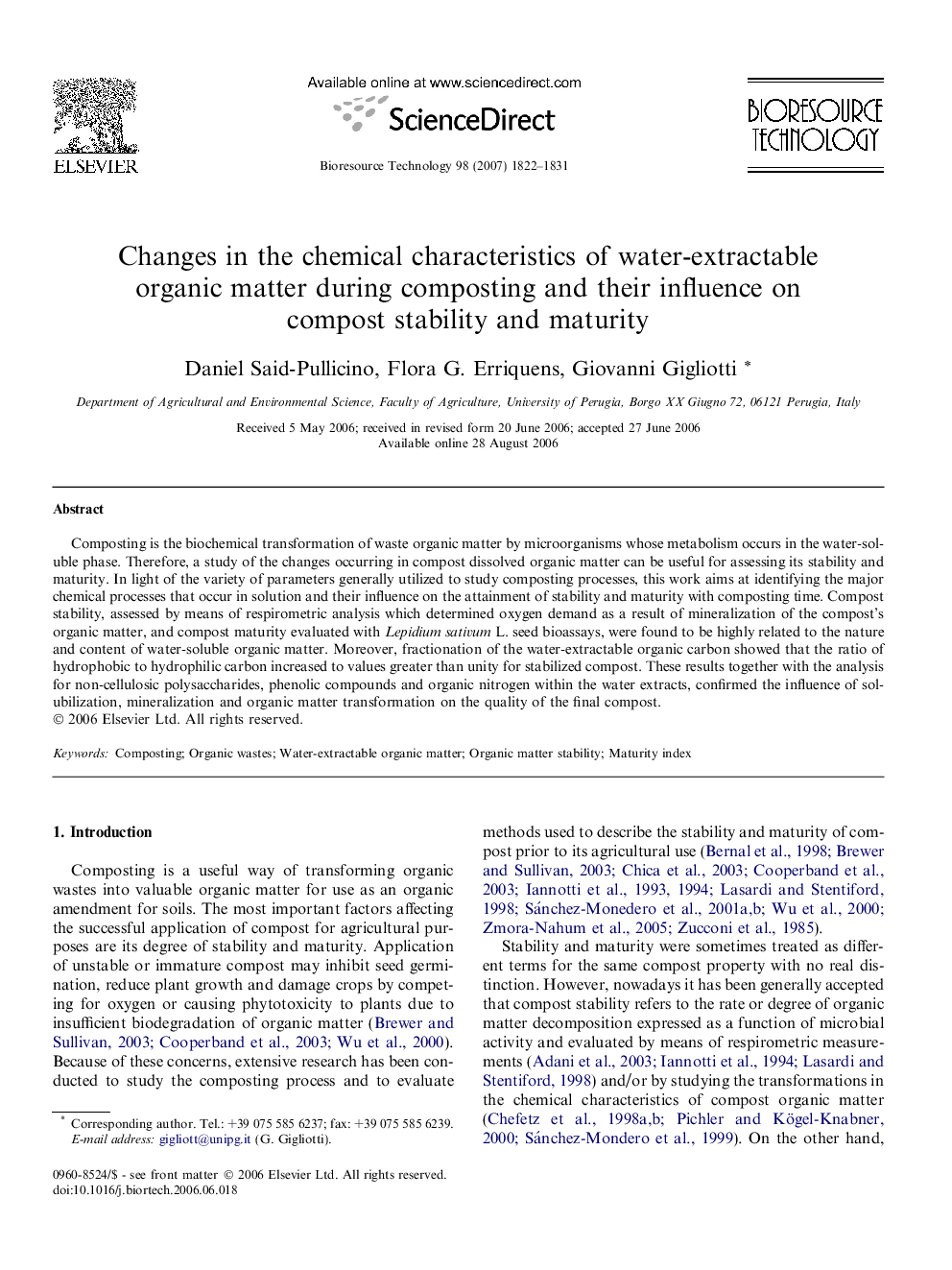| Article ID | Journal | Published Year | Pages | File Type |
|---|---|---|---|---|
| 686498 | Bioresource Technology | 2007 | 10 Pages |
Composting is the biochemical transformation of waste organic matter by microorganisms whose metabolism occurs in the water-soluble phase. Therefore, a study of the changes occurring in compost dissolved organic matter can be useful for assessing its stability and maturity. In light of the variety of parameters generally utilized to study composting processes, this work aims at identifying the major chemical processes that occur in solution and their influence on the attainment of stability and maturity with composting time. Compost stability, assessed by means of respirometric analysis which determined oxygen demand as a result of mineralization of the compost’s organic matter, and compost maturity evaluated with Lepidium sativum L. seed bioassays, were found to be highly related to the nature and content of water-soluble organic matter. Moreover, fractionation of the water-extractable organic carbon showed that the ratio of hydrophobic to hydrophilic carbon increased to values greater than unity for stabilized compost. These results together with the analysis for non-cellulosic polysaccharides, phenolic compounds and organic nitrogen within the water extracts, confirmed the influence of solubilization, mineralization and organic matter transformation on the quality of the final compost.
